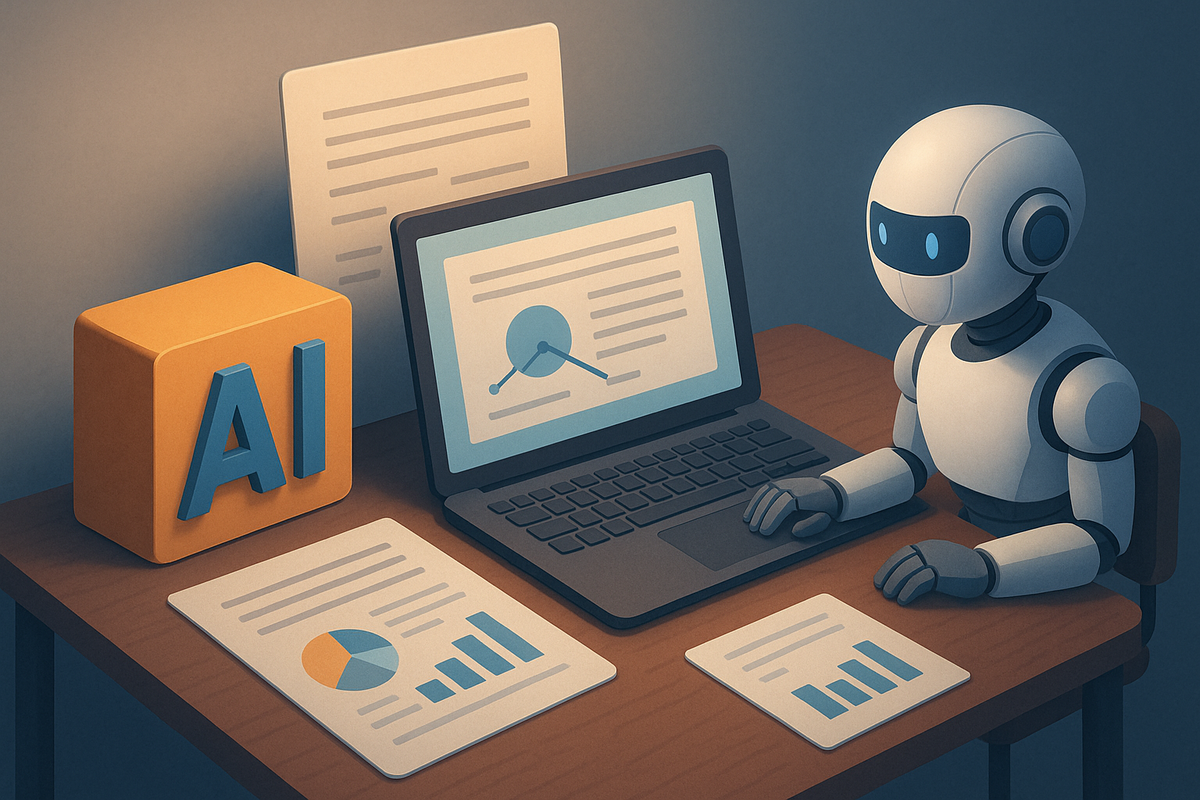In 2025, artificial intelligence has moved far beyond chatbots and automated reports. AI tools are now capable of producing in-depth whitepapers for B2B marketers—a content format traditionally associated with research, expertise, and credibility. This raises a critical question for companies: can AI-generated whitepapers truly be trusted?
Whitepapers have long been a cornerstone of B2B marketing. They serve as evidence of thought leadership, demonstrate industry insights, and help build trust with prospective clients. As AI technology continues to improve, businesses are increasingly exploring the potential of machine-generated whitepapers to scale content creation and reduce production costs. However, while AI offers efficiency, it also introduces new challenges for credibility and accuracy.
The Rise of AI in Whitepaper Creation
AI has revolutionized content creation across industries. Modern AI tools can:
-
Analyze Large Datasets: AI can rapidly process complex data and extract insights, helping to support arguments with relevant statistics and trends.
-
Generate Drafts Quickly: Producing a full-length whitepaper can take weeks for human teams. AI can draft these documents in hours, freeing up human experts to focus on strategy.
-
Optimize Content for SEO: AI can integrate keywords naturally, improving discoverability and engagement.
Companies in tech, finance, and SaaS sectors are increasingly leveraging AI for whitepaper creation, particularly when targeting multiple industries or global audiences. The combination of speed and scalability is enticing, but questions around trust and authenticity remain.
Trust Challenges in AI-Generated Whitepapers
Despite these benefits, AI-generated whitepapers face unique challenges:
-
Credibility Concerns – AI may cite outdated or inaccurate sources without verification. For B2B buyers who rely on whitepapers for actionable insights, this can erode trust.
-
Lack of Human Nuance – AI lacks the contextual understanding, industry experience, and storytelling skills that give whitepapers depth and persuasiveness.
-
Ethical and Compliance Risks – Automated content might unintentionally contain biased language or misrepresent data, raising ethical and compliance issues.
A 2025 report by the Content Marketing Institute found that while 62% of B2B marketers are experimenting with AI-generated content, only 18% feel confident in its credibility. Clearly, trust remains a major hurdle.
Strategies to Build Trust in AI-Generated Whitepapers
To ensure AI-generated whitepapers are both effective and trustworthy, businesses should adopt a hybrid approach:
-
Human Oversight: Use AI for research and drafting, but have industry experts review and validate insights before publishing.
-
Transparent Disclosure: Inform readers when AI contributes to content creation, reinforcing transparency and ethical responsibility.
-
Citation and Verification: Ensure all statistics and claims are backed by verifiable sources, ideally with links to original studies or datasets.
-
Continuous Updating: AI can quickly refresh content as new data becomes available, keeping whitepapers relevant and accurate.
Combining AI efficiency with human expertise ensures that whitepapers retain authority and reliability while leveraging the benefits of automation.
The Future of AI in B2B Whitepapers
AI is unlikely to replace human writers entirely. Instead, the future points toward collaboration: AI handling repetitive tasks like research, drafting, and SEO optimization, while humans provide context, storytelling, and oversight.
Some anticipated trends include:
-
Personalization at Scale: AI could create multiple versions of a whitepaper tailored to different industries or buyer personas.
-
Integration with Analytics: AI tools can monitor engagement and feedback, refining whitepapers based on real-world performance.
-
Faster Go-to-Market: Businesses can release timely insights faster, keeping pace with rapidly changing market conditions.
With responsible adoption, AI-generated whitepapers can deliver value without compromising trust.
Conclusion
AI-generated whitepapers are poised to transform B2B content marketing, offering speed, scalability, and data-driven insights. However, trust remains a critical factor. Businesses that blend AI capabilities with human expertise, maintain transparency, and ensure rigorous validation will be best positioned to harness the full potential of this technology.
The takeaway is clear: AI can assist in whitepaper creation, but it cannot replace the human touch that gives content authority and credibility. A hybrid approach is the key to producing B2B whitepapers that are both efficient and trustworthy.
You May Also Like: AI-Powered Whitepaper Syndication: Smarter Targeting for Better Leads in 2025

